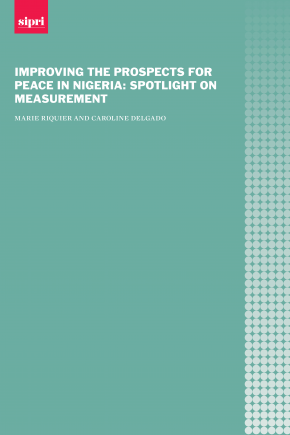Improving the Prospects for Peace in Nigeria: Spotlight on Measurement
This report aims to provide a better understanding of the World Food Programme’s (WFP) monitoring systems and the internal processes that WFP has launched to measure its contributions to improving the prospects for peace in Nigeria.
The findings are based on a desk review of programme documents and in-depth interviews with a range of stakeholders throughout 2021 and 2022. Additionally, relevant questions were added to the WFP Food Security Outcome Monitoring (FSOM) survey with intended beneficiaries across the three states in north-east Nigeria: Borno, Adamawa and Yobe. The findings suggest that WFP Nigeria has a robust monitoring system that is well suited to monitor its assistance, impact, efficiency and performance. However, it says little about WFP’s contributions to improving the prospects for peace. This report, therefore, provides eight recommendations on how WFP Nigeria can adapt its monitoring systems to overcome some of the challenges ascribed to monitoring, assessing and measuring contributions to peace in conflict-affected locations.
This report is the third of a series of three. The series is part of phase II of the SIPRI–WFP knowledge partnership and investigates WFP’s contributions to improving the prospects for peace in Nigeria. The Nigeria case study research focuses on three thematic areas: stabilization, cash-based transfers (CBTs) and measurement.
1. Summary of context analysis
2. The Nigeria case study approach
3. The current data collection system: Challenges and opportunities
4. External information flows and working through partners
5. Conclusions


